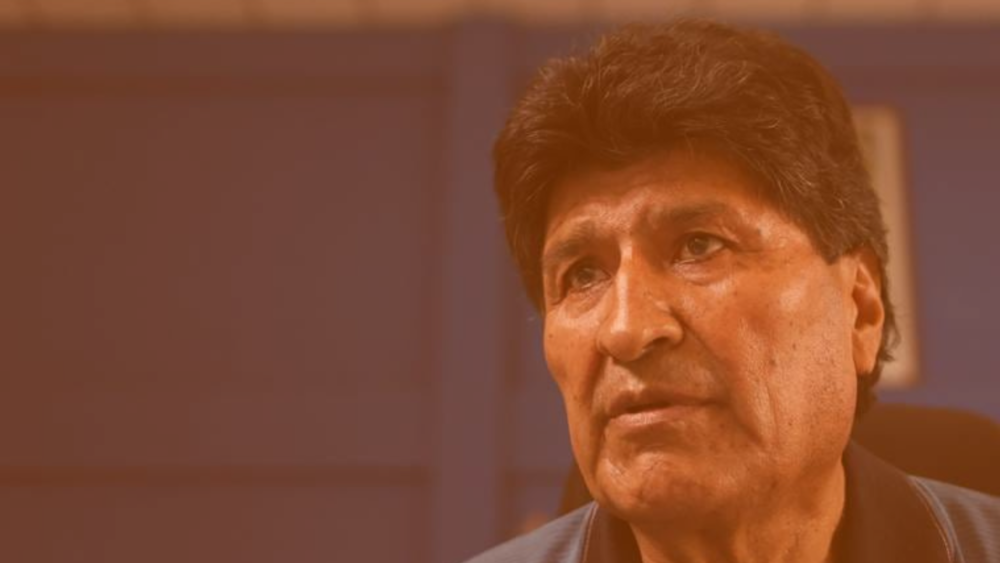The legacy of one of the Left’s greatest 21st century figures is being stained, all because he failed to secure his succession
Kings and Queens of old would turn their courts and countries into battlefields to secure it. Private and public enterprises have been laid to ruin by a failure to ensure it. The thought of it can keep anyone who has invested their time and passion into any project awake at night. There has even been a rather popular TV show documenting the pitfalls of this ancient challenge: ‘Succession’. How are achievements secured and paths, painstakingly forged, maintained?
A tragic example of this predicament has been unfolding within one of the greatest parties of the Latin American Left: Bolivia‘s MAS, which propelled the legendary Evo Morales to power. The party always held that it was more a vehicle for the combined power of the nation’s unions of workers and peasants, and indigenous movements, than a traditional political force. Today, the unity of these groups under MAS is fraying.
The reasons for this are complicated, but they boil down to a slowing down of Bolivia’s gas production, which has fuelled the progress (and clientelism) of the past couple of decades, as well as a fragmentation that had been underway even during the Morales presidency due to a sense of ‘strongman’ politics that the former president was exhibiting. Also, many leaders (especially of indigenous groups) left MAS when the government gave the green light to explore exploitation opportunities or commenced road-building projects in protected areas.
However, the true crux of the matter, and the reason why the ongoing political crisis does not show signs of ending, is that Morales failed to secure his succession.
The Bolivian constitution places a two-term limit on presidents. In 2016, Morales lost a referendum on changing the constitution to allow himself to run again. In a move Greeks will find familiar, he used the nation’s high tribunal to bypass the referendum result: they ruled that limiting Morales’ right to be elected would infringe on his human rights, thus opening the way to his third-term win in 2019, which was followed by a coup that deposed him and placed a right-wing government in power for a year.
MAS then returned to power under the leadership of Luis Arce, who is the current president of the nation. His relationship with Morales also turned sour, after he went back on his promise not to pursue a second term in the 2025 elections. Morales was re-elected to the helm of MAS and expelled Arce from it. The party’s split between Evistas and Arcistas has since reached a crescendo. The latest chapter of the sorry story is the charges of molestation of a minor and human trafficking that have been brought against Morales.
Currently, the country is losing billions of dollars in exports and people are suffering fuel and food shortages, as Morales’ supporters around his heartland coca-growing region of Cochabamba (Morales was the leader of the powerful coca-growers union), have taken to the streets, blocking all transport West to La Paz, East to Santa Cruz, or South to Sucre. They demand for the charges to be dropped and for Morales to be allowed to run again in 2025. The government, refusing to alter the constitution through blackmail, stands its ground.
The situation is doing Morales’ reputation no favours among urban dwellers. The majority of feedback I received centred around the following axis: Evo was a good president but he has gotten addicted to power and is even happy to see the country burn, if it means returning to the presidency. The constitution cannot be changed for one man.
Term limits have an excellent reason for existing, they protect republics from becoming de facto dictatorships. Morales, despite the many excellent initiatives he spearheaded during his incumbency, is still subject to Bolivia’s constitution. The solution can never be bending the rules to adapt to the exception. Instead, knowing the limits, he should have found ways to secure the longevity of the work started during his presidency through a healthy succession.
Especially the Left, a pluralistic and horizontal ideology to its core, cannot depend on messiahs and saviours, but must highlight the power of collectivism – the real power behind Evo Morales’ success.
The failed referendum of 2016, the coup of 2019, and the current political crisis are all serving to mar the legacy and reputation of one of the Left’s greatest 21st century figures. And all because he failed to secure his succession.
Do you want to be informed of DiEM25's actions? Sign up here















